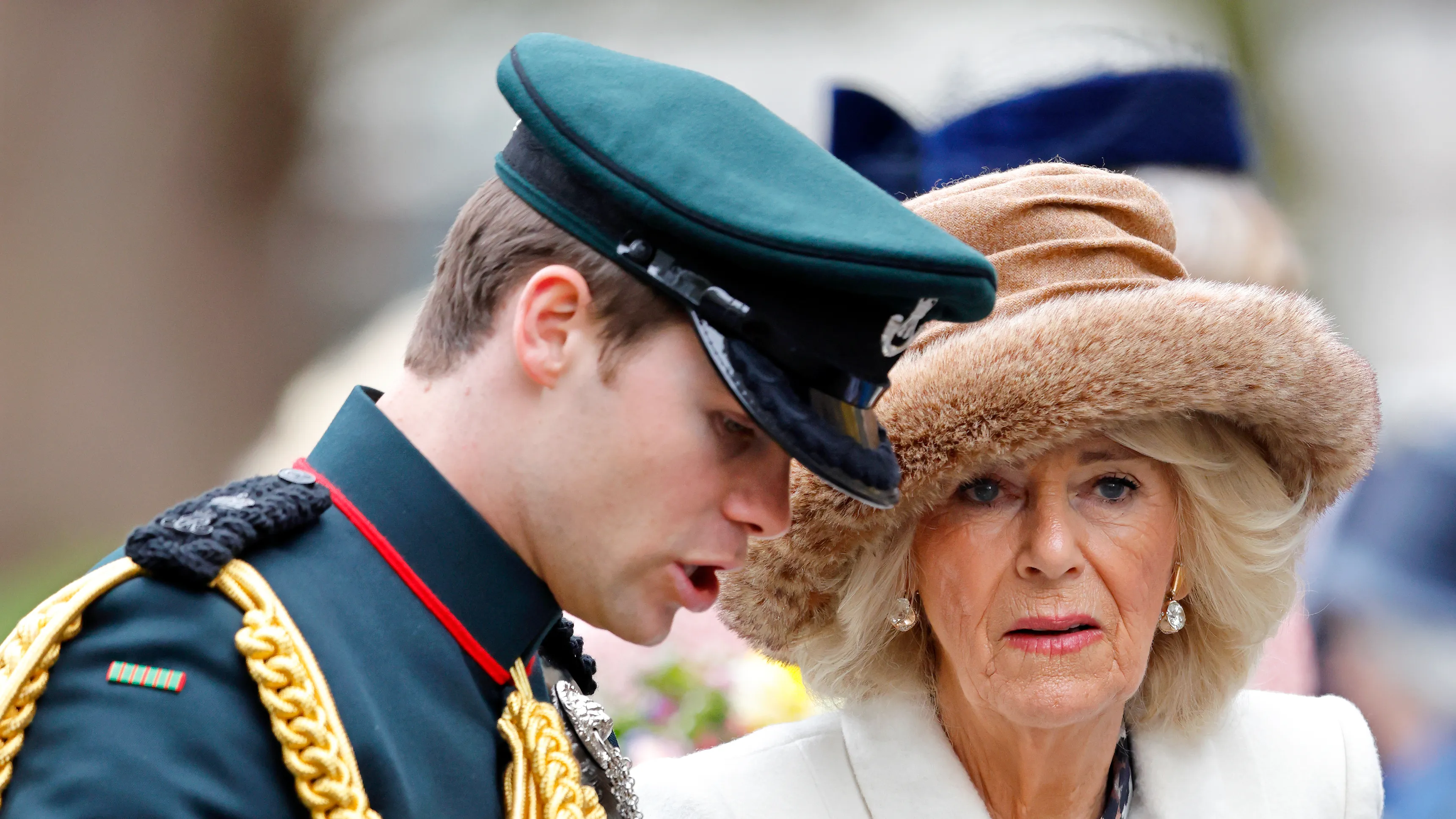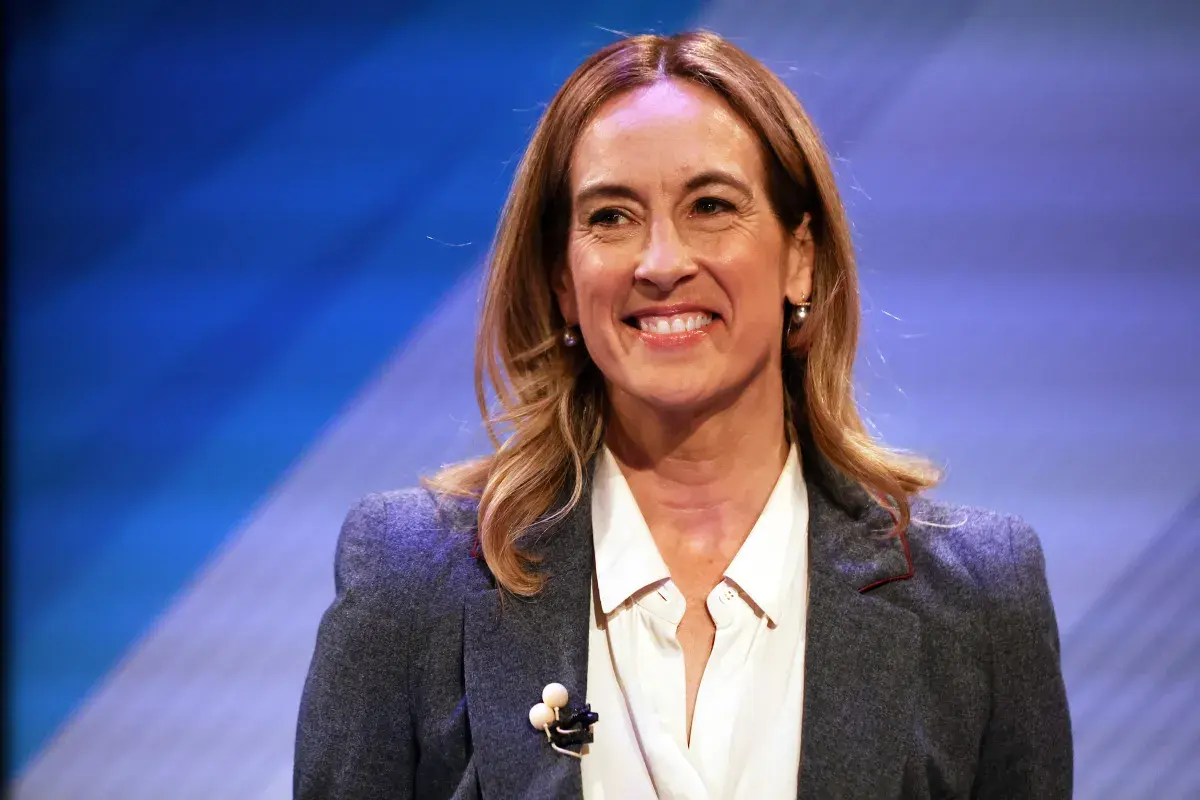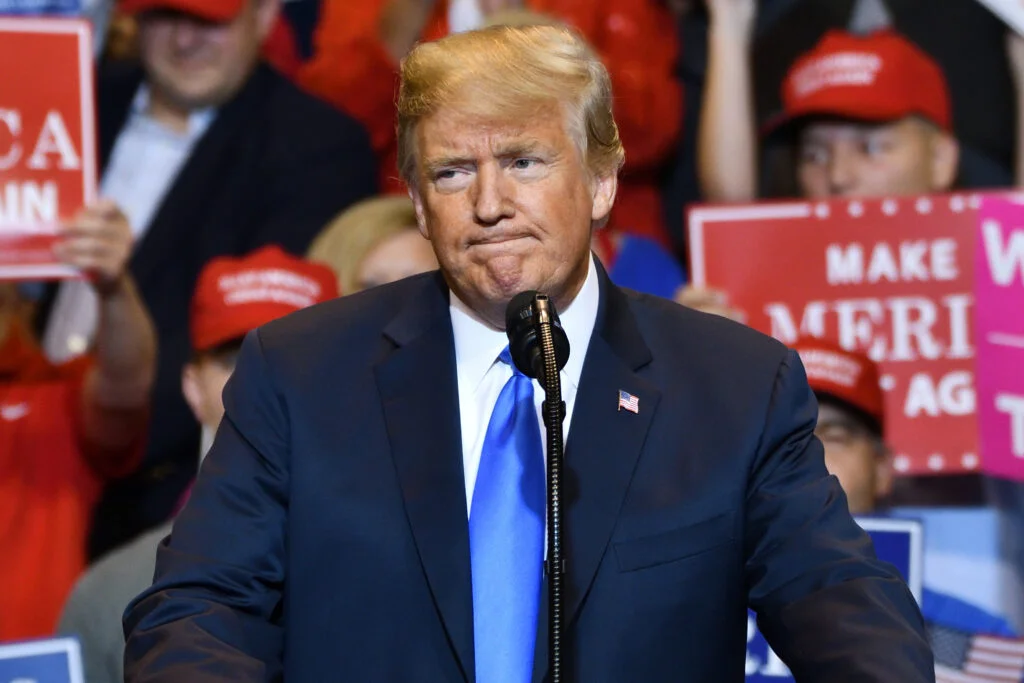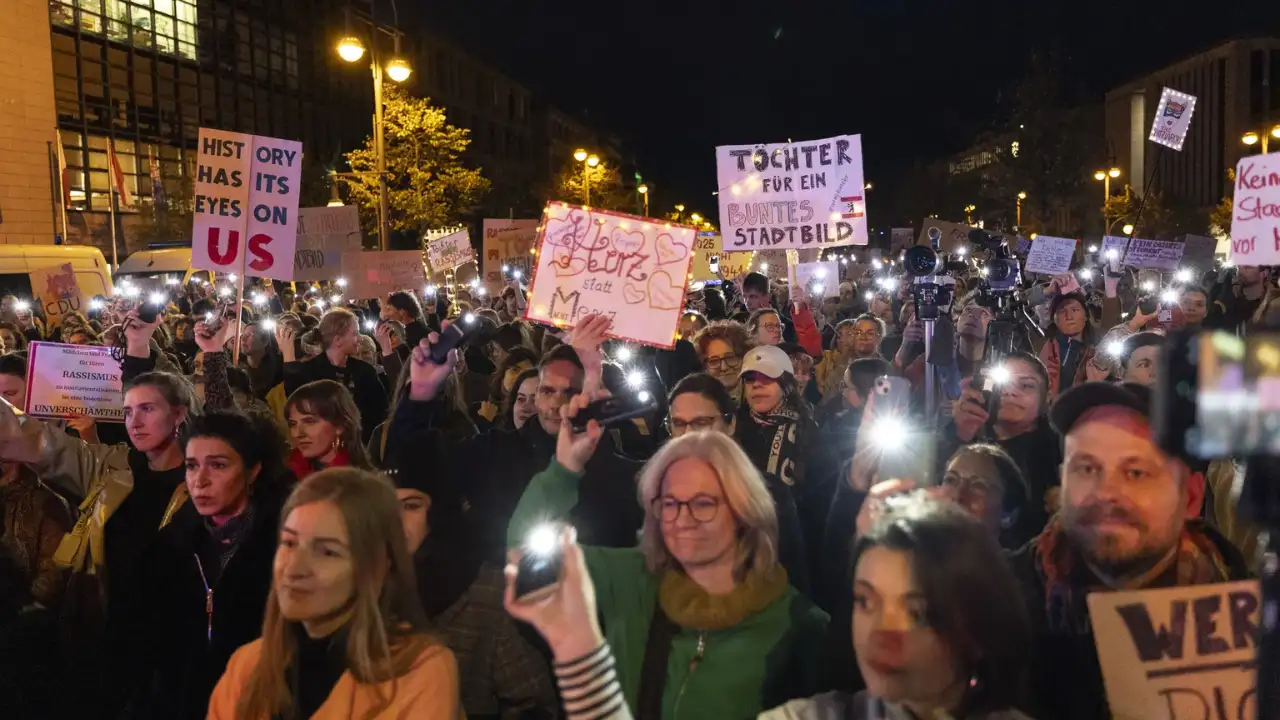Copyright ynetnews
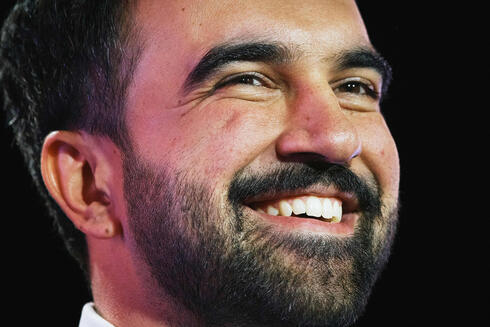
This Tuesday, New York City’s most turbulent election in decades reaches its climax. Early voting has already shattered records — turnout during the first weekend was five times higher than in the 2021 race. The New York Post put it bluntly in a recent front-page headline: “One Week to Save New York.” At the center of the storm is one candidate — Zohran Mamdani, a young, Muslim, democratic socialist with openly anti-Zionist views. Defying expectations, he has built a large, passionate following. His rise has come despite — and some say because of — his unorthodox positions in the American political landscape. Mamdani is facing former New York Governor Andrew Cuomo, who is running as an independent after Mamdani upset him in the Democratic primary, and perennial Republican candidate Curtis Sliwa, who is widely seen as a long shot. While Israelis might struggle to grasp why a mayoral race — focused on sanitation, traffic and street lighting — has become a global flashpoint, New York is no ordinary city. Often referred to as “the capital of the world,” it’s the economic and cultural gateway to the United States, home to Wall Street, Broadway and over $2.1 trillion in metropolitan GDP. If it were a country, New York would rank among the top ten economies globally. Why should Israelis care about a mayoral race? What happens in New York rarely stays in New York. While the mayor doesn’t set foreign policy, the office holds immense influence over public discourse and local policy. In America’s decentralized political system, the tone set by the top filters down. A hostile or confrontational mayor can shape education campaigns, public investments and how Israel is portrayed in the public square. New York is also home to the largest Jewish community in the world — roughly 1.6 million people — and the largest Israeli expatriate population outside of Israel. It’s considered a second home for Israeli tech, culture and business. Nearly every Israeli has a relative living in the city, and hundreds of thousands visit each year. Israeli-founded companies in New York generated an estimated $19.5 billion in economic output in 2024. The city hosts major Jewish organizations, philanthropic foundations and key players in U.S.-Israel economic relations. It is, perhaps more than any other place outside Israel, where the relationship between Israel and the Jewish diaspora is most visible and most tested. What’s at stake for Israel? A lot. Mamdani has made his opposition to Israel a central pillar of his campaign. He’s vowed to make New York a symbol of solidarity with Palestinians and to challenge the city’s institutional ties to Israel. While his power as mayor would be limited, the rhetoric itself matters. He has pledged to cancel municipal investments in Israeli bonds and companies, and to dismantle the New York-Israel Economic Council established by outgoing Mayor Eric Adams. He supports legislation called “Not On Our Dime,” which would strip tax-exempt status from New York nonprofits that support activities beyond the Green Line — a move that could affect nearly every major Jewish philanthropic organization in the U.S. Given that New York pension funds hold some $291 million in Israeli assets, these are not idle promises. Mamdani has also promised to relax restrictions on pro-Palestinian protests and revise the city’s definition of antisemitism to exclude anti-Zionism, arguing that the current IHRA-aligned definition “endangers free speech.” If elected, his greatest influence would likely be on shaping public discourse. When he speaks against the IHRA definition or supports anti-Zionist demonstrations, he helps legitimize a new public language — one that could spread far beyond New York. How did Israel and the war in Gaza become so deeply embedded in the campaign? Even before the October 7 Hamas massacre, Israel had become a defining political issue across American party lines. The war in Gaza only deepened the polarization between Democrats and Republicans — especially in New York, where anti-Israel protests have been widespread. Candidate Zohran Mamdani has repeatedly criticized Israel’s policies, supported pro-Palestinian student strikes and defended activists arrested at demonstrations. He refuses to recognize Israel’s right to exist as a Jewish state, instead calling for it to be “a democratic state with equal rights for all.” A New York Times poll found that most New Yorkers support Mamdani’s stance on the Israeli-Palestinian conflict, with nearly 50% saying he offers “the best approach.” Among voters under 29, that number jumps to 66%. What about Jewish voters? The Jewish community is divided. Late October polls show that between 20% and 40% of Jewish and Israeli voters in the city support Mamdani — especially younger, liberal-left-leaning Jews — while older voters largely back Andrew Cuomo. Progressive and anti-Zionist Jewish groups have endorsed Mamdani and funded campaign ads, while mainstream organizations like the American Jewish Committee (AJC) and UJA-Federation of New York have issued warnings against him. Many young Jews view Mamdani as a break from what they see as “politics of fear.” Israeli pianist Shai Wosner said he voted for Mamdani because he is “a determined, if imperfect, voice” and added: “I don’t need my mayor to be a Zionist. I need him to run a city.” The race has become a microcosm of a larger ideological battle within the Democratic Party — between the old guard, represented by figures like Cuomo and President Biden, and a rising generation of democratic socialists with sharply anti-Israel views. Mamdani embodies this new wave, making the election far more than just a local contest. What do the polls say? All major polls project a clear Mamdani victory. Recent surveys show him leading with 43% to 51% of the vote. Cuomo trails at 26% to 32%, and Republican candidate Curtis Sliwa polls between 14% and 21%. In New York, a candidate doesn’t need an outright majority — just a plurality. Whoever gets the most votes wins, even if it’s only a third of the total. The winner will take office January 1, 2026, moving into Gracie Mansion, the official mayoral residence. Who are the candidates? Zohran Kwame Mamdani, 34, is the Democratic nominee after a surprise victory in the June primary. Initially shunned by party elites over his views on Israel, many have since rallied behind him, despite lingering discomfort. If elected, he would become New York’s youngest-ever mayor — and the first Muslim to hold the office. Mamdani was born in Uganda to Indian Muslim parents. His father, Prof. Mahmood Mamdani, is a renowned Columbia University scholar and vocal critic of Israel his mother is award-winning filmmaker Mira Nair. At age 7, the family moved to the U.S., where he grew up in Harlem and Washington Heights, attending elite schools. He founded a Students for Justice in Palestine chapter at Bowdoin College and has said he co-wrote articles with his father. Before entering politics, Mamdani pursued a brief rap career under the name “Mr. Cardamom,” referencing his favorite spice, and worked with at-risk youth and on his mother’s film sets. He was elected to the New York State Assembly in 2020, representing Queens, and quickly became a prominent voice on the progressive left. He is one of the few American politicians to openly identify as a “socialist,” drawing comparisons to Rep. Alexandria Ocasio-Cortez and Sen. Bernie Sanders, both of whom have campaigned for him. In office, Mamdani pushed for rent freezes, subsidized transit and free early education. He is also a vocal supporter of the BDS movement and introduced (unsuccessful) legislation against Israeli interests. Days after October 7, he was arrested at a protest outside Senator Chuck Schumer’s home, calling Schumer “an accomplice to genocide.” Andrew Cuomo, 67, Mamdani’s main challenger, is a former three-term governor of New York. After losing the Democratic primary, he is running as an independent under the slogan “Restore Sanity to New York.” Cuomo, son of former Governor Mario Cuomo, resigned in 2021 following sexual harassment allegations from 11 women — claims he denies and which did not lead to charges. Once lauded for his pandemic-era leadership, his reputation collapsed after revelations his administration withheld nursing home death data. A state report described his office culture as “toxic and fear-driven.” Cuomo is backed by wealthy donors like Michael Bloomberg, Bill Ackman and Ronald Lauder, along with mainstream Jewish institutions. A strong supporter of Israel, he promised to visit the country before the election, though he recently distanced himself from Prime Minister Benjamin Netanyahu amid growing public criticism. Last year, he even offered to join Netanyahu’s legal defense team after the ICC issued a warrant against him. Cuomo’s platform includes combating antisemitism as a top priority. Curtis Sliwa, 71, is a longtime radio host and founder of the Guardian Angels, a civilian safety patrol. He’s the Republican candidate, representing a small conservative base in the heavily Democratic city. Sliwa shed his trademark red beret to “look more mayoral” and has refused calls to drop out, despite pressure from his party, radio bosses and even the White House. He has a longstanding feud with Donald Trump, who once mocked his appearance and affection for cats. Sliwa insists on staying in the race: “I earned my spot on this stage. I’ll only quit if a truck hits me and turns me into a speed bump,” he said during a debate. While he has no realistic path to victory, Sliwa is polling around 15%, drawing votes from disaffected civil servants and older white residents — making it harder for Cuomo to unify the anti-Mamdani vote. Why is everyone talking about Zohran Mamdani? Because he’s a phenomenon. In just months, the formerly obscure state assemblyman exploded into a political star — filling crowds, screens and TikTok feeds. His campaign looks like a mash‑up of sketch comedy, political satire and social‑media trend, with slogans of social justice and a direct tone aimed at young voters. Ninety thousand volunteers are signed up for his campaign — 40,000 of them since the primaries. On weekends, you’ll see thousands of activists in Brooklyn and Astoria, his home district, handing out flyers, humming songs written in his honor and filming endorsement videos. Mamdani presents himself as a challenger to political and economic elites, but his opponents say he is an inexperienced demagogue, a “no‑flo‑baby” recycling catch‑phrases without grasping the complexity of running a city of this size. In TV debates, he dodged professional questions and sometimes simply said he “hasn’t developed a position yet” on core ballot issues. While polls show him firmly ahead, most do not show him clearing the 50 % threshold — indicating that a majority of city voters are still unsure they want him in City Hall. What kind of mayor would Mamdani be, if elected? Probably more moderate than many expect. Since his primary win, his campaign has followed a cautious “moderation” strategy, advised by figures like Barack Obama’s team and London’s Muslim mayor Sadiq Khan. He has personally reached out to rivals, met business leaders and Jewish‑community heads, sent letters in Yiddish and wished a “Shana Tova” in Hebrew. Mamdani pledges as mayor to focus on the cost of living: freeze rents, subsidize public transit and education, raise taxes on the rich and pursue an ambitious environmental agenda — including banning gas in new buildings, full electrification by 2035 and a carbon tax on corporations. How did antisemitism become a central issue? Even before the war, there was a steady rise in hate incidents in the city — mostly targeting Jews — but at the end of 2025, a drop of 26 % was reported. Still, memories remain fresh of pro‑Palestinian campus protests, which featured reported harassment of Jewish or Israeli students, and of violent street events. Cuomo describes Mamdani — who supports anti‑Israel protesters — as “a danger to Jews,” and pledges to “restore New York as a city of security for all its citizens.” Mamdani counters that he is being accused of antisemitism simply for being Muslim and says antisemitism cannot be solved with law enforcement alone but must be tackled through education, dialogue and equality. He has proposed to increase eightfold the city budget for anti‑hate education programs, while bolstering infrastructure in synagogues and Jewish community institutions. His supporters note that his advisory team includes Jews — among them Brad Lander, the city’s comptroller, and Rep. Jerry Nadler — and they call the accusations “a political geweld campaign” (a Yiddish‑inflected term for intense pressure). Who is Jessica Tisch and how is she connected? Jessica Tisch, 44, former New York Police commissioner and a member of the Tisch family — one of America’s most prominent Jewish dynasties — has become a key figure in the race. Mamdani surprised many by saying at a debate that he would keep her in her post if elected. The remark — a signal aimed at reassuring Jewish voters — was also read as his attempt to align with the city establishment. Tisch, an observant Jew and Harvard graduate, is highly respected in the Jewish community for her strong stance against antisemitism and her record in fighting crime. At her swearing‑in, she wore a Star of David and said: “My Jewish identity is not a role I can take off and put on — it is who I am.” At an Anti‑Defamation League event this year, she stated: “Our city will not go backward — not on my watch.” The Tisch family holds an estimated $10 billion in assets and is a major donor to U.S. Jewish federations and Israeli institutions. In this campaign cycle, they gave some $1.2 million to Cuomo. Both Cuomo and Mamdani have said they would be pleased to retain Tisch in office. How much real power does the mayor of New York City truly have? Less than one might think. Although the mayor oversees an enormous budget of approximately $116 billion — nearly equivalent to that of the state of Israel — his powers are subject to state‑level oversight in Albany. He cannot raise taxes, issue loans beyond the budget limit or unilaterally change public‑transit policy without state approval. Even proposals by Mamdani — such as a 2 % income‑tax increase on earnings above $1 million and a corporate‑tax hike to 11.5 % — are beyond the mayor’s authority. They require approval by the state legislature and the signature of Democratic Governor Kathy Hochul, who, while supportive of Mamdani, has already signaled opposition to these measures. At the same time, there are areas where the mayor’s power is nearly unchecked: policing, education, public housing and city‑health services. The New York City Police Department is the largest in the world, with about 36,000 officers and a budget exceeding $11 billion. The mayor appoints the police commissioner, sets enforcement policy, determines the priorities and can direct whether to clear campus protests or not. That is also why Mamdani’s platform attracts such interest: he has pledged to cut overtime for police officers, to dismantle the unit that disperses protests, and to shift certain emergency tasks to mental‑health teams. In contrast, fellow candidates Andrew Cuomo and Curtis Sliwa promise to increase the size of the force and revive a “zero‑tolerance” policy. What about housing, transit and cost of living? These are the key issues of the election. New York City has long suffered from a housing shortage, with annual rent increases of about 3 % and the lowest vacancy rate in 60 years. Projections estimate that by 2030 the city will need to add roughly 500,000 new housing units just to meet demand. Mamdani promises New Yorkers free public transit, but his power is limited. He also aims to freeze rents for four years for more than two million residents in regulated housing — a plan that may face legal challenges but enjoys huge public support. He proposes issuing $70 billion in municipal bonds to build public housing, but that sum exceeds the city’s debt limit by about $30 billion and would require state approval, making its realization doubtful. Cuomo is advocating for public‑private partnerships in development, while Sliwa opposes dense construction and prefers to bring thousands of vacant units back to market. On the transit front, the Metropolitan Transportation Authority (MTA), which controls the subway and bus systems, reports to the state the mayor controls four of its 23 board seats. Mamdani vows to make bus rides free — but the MTA has pointed out that he lacks the authority to do so and warned of potential service declines. According to the agency, around 44 % of riders already “evade fares.” Subway ridership has recovered to about 70 % of its pre‑pandemic level. A sharp debate is ongoing over the new congestion‑pricing plan in downtown Manhattan: Sliwa, echoing the approach of Donald Trump, calls for its cancellation (“it kills small business”), Cuomo supports it with exemptions for non‑residents, and Mamdani backs it as part of a broader scheme for youth free transit and better rail‑public‑finance. What about immigration and migrants? This is one of the key issues in the campaign. New York City is currently processing about 32,000 new migrants and since 2022, has handled more than 239,000 asylum applications — a budgetary and operational challenge of unprecedented scale. Shelter facilities have been improvised in hotels, the education, health and welfare systems are under strain, and the annual cost is estimated at more than $2 billion. Mamdani supports continuation of the “sanctuary city” policy that bars cooperation between local immigration authorities and federal law enforcement, and he proposes providing free legal representation to anyone facing deportation. “Working immigrants are the beating heart of this city,” he says, and he promises them full access to city services. Sliwa, on the other hand, is calling for a referendum to determine whether the sanctuary status should continue. Cuomo offers a middle course: he opposes mass deportations but also criticizes the “chaos created by local sanctuary policies.” He supports tighter cooperation with the federal government and balanced immigration quotas to avoid what he calls “an urban crisis rooted in a national failure.” What role is Trump playing in the race? The spirit of Donald Trump looms over the mayoral contest like a low cloud on the Midtown skyline. The president, a Queens native, continues to weigh in on what he calls “the battle for the greatest city in our nation.” He has promised not to let it “fall into the hands of my little communist,” as he calls Mamdani. He has not spared his remarks for Mamdani’s rivals, Cuomo and Sliwa, calling them “losers,” “failures” and “people not able to deal with the radical Jew‑hater that wants to take over New York.” Recently, Trump directed a freeze on $18 billion in federal infrastructure funding for the city, claiming that the money is “run by radical pro‑DEI elements” (referencing diversity‑equity‑inclusion programs). His administration has also explored canceling the congestion‑pricing plan and re‑examining the city’s public‑safety funding. Trump said that if Mamdani is elected, he will consider further federal funding cuts to the city. All three major candidates must tread carefully: Sliwa, as a Republican, says the city must “make peace with Trump instead of fighting him” Cuomo pledges a working relationship but “will not back down” and Mamdani emphasizes that he will not govern “on fear,” but also will not yield “to political bullying from Washington.” Cuomo warned him: “Trump will take you out on the tush.” What happened to the incumbent mayor, the ‘friend of the Jewish community’? Eric Adams, elected in 2021 with a self‑styled pro‑Israel image, withdrew from the race in late September amid a series of investigations into illegal fundraising and perks — including upgraded flights on Turkish Airlines. The revelations seriously undermined his credibility and fundraising ability. Upon his withdrawal, he endorsed Cuomo — but many of his younger supporters, especially from Black and Hispanic communities, shifted to Mamdani. Despite Adams’ pro‑Israel image, his growing ties with Trump — including the pardon he received — created a perception of a politician straddling camps. What to expect on the morning of Nov. 5? If the polls hold, New York City may wake the morning after election day with a mayor who is young, Muslim and avowedly anti‑Zionist — and backed by a new generation that has had enough of the old‑school politics. For Israelis and Jews in the city, this could mean a period of adaptation and perhaps a fresh dialogue on identity, loyalty and the meaning of the connection to Israel. As one Brooklyn‑based Israeli, Dror, put it: “I’m not afraid of Mamdani. I am afraid of what made him electable. Because if a city like New York prefers the symbol to the track record, that says something about us too.”
